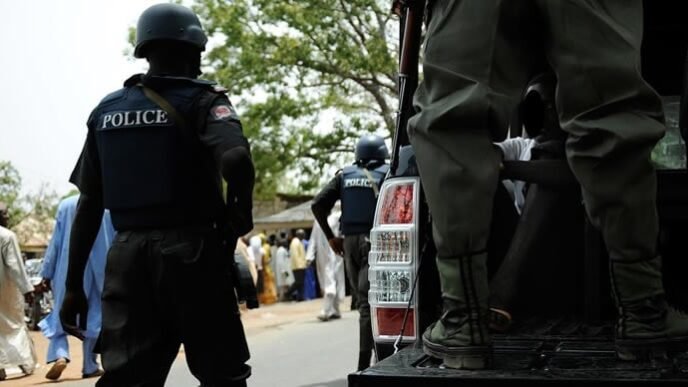In a shocking development, a Nigerian soldier, Private Lukman Musa, serving with the 3 Division of the Nigerian Army in Jos, Plateau State, has been sentenced to death by hanging for the murder of a tricycle rider. The ruling, delivered by a military court martial, has sparked widespread discussion about discipline within the armed forces and the demand for justice in cases of extrajudicial killings.
The court’s decision marks a historic moment in Nigeria’s military justice system, demonstrating the army’s resolve to uphold accountability among its personnel, especially when civilians are victims of violent crimes.
The Incident That Led to the Death Sentence
According to official reports, the incident occurred in Jos, Plateau State, where Private Musa fatally shot a local tricycle rider during what was described as an altercation over a minor dispute. Witnesses told investigators that the soldier, who was armed and in uniform at the time, engaged in a heated exchange with the victim, which tragically escalated into violence.
The tricycle rider, whose name has been withheld by authorities out of respect for his grieving family, was pronounced dead on the spot after sustaining gunshot injuries. The killing triggered outrage in the community, with residents staging protests and demanding justice.
In response to the growing tension, the Nigerian Army immediately placed Musa in custody pending investigation and later convened a General Court Martial (GCM) to try him for murder.
The Military Trial
The trial of Private Lukman Musa was conducted under the Armed Forces Act, which governs the conduct, discipline, and accountability of Nigerian military personnel. The proceedings lasted several weeks, during which witnesses, military investigators, and legal experts presented evidence.
The prosecution argued that Musa had abused his authority and violated the military’s strict code of conduct by unlawfully taking the life of an unarmed civilian. The defense, however, attempted to argue for leniency, citing emotional provocation and stress.
After careful deliberation, the General Court Martial found Musa guilty of murder. In line with Nigerian law and military regulations, the panel sentenced him to death by hanging, a penalty that underscores the severity of the crime.
Nigerian Army Reacts
The Nigerian Army, through its spokesperson, stressed that the ruling was a strong message against indiscipline and abuse of power within the ranks. According to the Army’s official statement, the case demonstrates the institution’s zero tolerance for misconduct, especially when it involves civilian casualties.
“The Nigerian Army remains committed to upholding human rights and the rule of law. Any soldier who violates the trust bestowed upon him will face the full consequences of his actions,” the statement read.
The Army also expressed condolences to the family of the deceased tricycle rider, promising to work with local authorities to support the community and prevent future incidents of this nature.
Public Reactions
The sentencing has generated a wide range of reactions across Nigeria.
Civil rights groups have welcomed the decision, describing it as a rare but necessary act of accountability in a country where cases of extrajudicial killings by security personnel often go unpunished.
“This ruling shows that the Nigerian Army is serious about holding its men accountable. For too long, citizens have lived in fear of those meant to protect them. Justice has finally been served,” said a spokesperson for a Plateau-based human rights organization.
On the other hand, some Nigerians have raised questions about the use of the death penalty, calling for a review of capital punishment in the country. They argue that while Musa’s crime was severe, life imprisonment could have been a more humane sentence.
In Jos, residents expressed mixed feelings. While many welcomed the judgment, others cautioned that the ruling should not be the end of reforms. “It’s not just about punishing one soldier. The entire system needs to change so that such killings don’t happen again,” a tricycle union leader told reporters.
Broader Implications for the Nigerian Military
The sentencing of Private Musa is not an isolated incident. In recent years, the Nigerian Army has faced scrutiny over reports of human rights violations, particularly in conflict zones such as the North-East, where troops are engaged in counter-insurgency operations against Boko Haram and other armed groups.
Analysts say that the ruling could help rebuild trust between the military and civilians, especially in regions where relations have been strained. It also sends a warning to serving soldiers that abuse of power will not go unpunished.
Furthermore, the judgment comes at a time when Nigeria is under pressure, both domestically and internationally, to strengthen accountability in its security institutions. International human rights organizations have often criticized Nigeria for not doing enough to investigate and prosecute cases of extrajudicial killings.
The Death Penalty Debate in Nigeria
The sentencing has also reignited debate over the death penalty in Nigeria. Under Nigerian law, crimes such as murder, armed robbery, and treason can attract the death penalty, which is usually carried out by hanging or firing squad.
Human rights activists have long argued that capital punishment should be abolished, insisting that it is inhumane and does not deter crime. Nigeria, however, maintains the death penalty as a constitutional provision, and several states and military courts continue to hand down such sentences.
In Musa’s case, legal experts note that the sentence was not only a punishment for his actions but also a deterrent measure aimed at discouraging similar misconduct among soldiers.
What Happens Next?
Private Musa’s sentencing is subject to confirmation by the Nigerian Army Council and possibly the President of Nigeria, who is the Commander-in-Chief of the Armed Forces. Military death sentences typically go through a rigorous confirmation process before execution.
If upheld, Musa will be executed by hanging, as directed by the court martial. However, he still has the right to appeal the judgment through Nigeria’s legal system, including seeking clemency.
Conclusion
The death sentence handed down to Private Lukman Musa marks a defining moment in Nigeria’s military justice system. By sentencing one of its own to death for the murder of a tricycle rider in Jos, the Nigerian Army has signaled a commitment to discipline, accountability, and justice.
While the ruling has been praised as a victory for human rights and a reassurance for civilians, it has also reignited debates about capital punishment and the broader need for reforms in Nigeria’s security sector.
For the victim’s family, the sentencing offers a measure of closure, though no punishment can truly compensate for the loss of life. For the Nigerian public, it serves as a reminder that the fight for justice and accountability within the armed forces is far from over.














